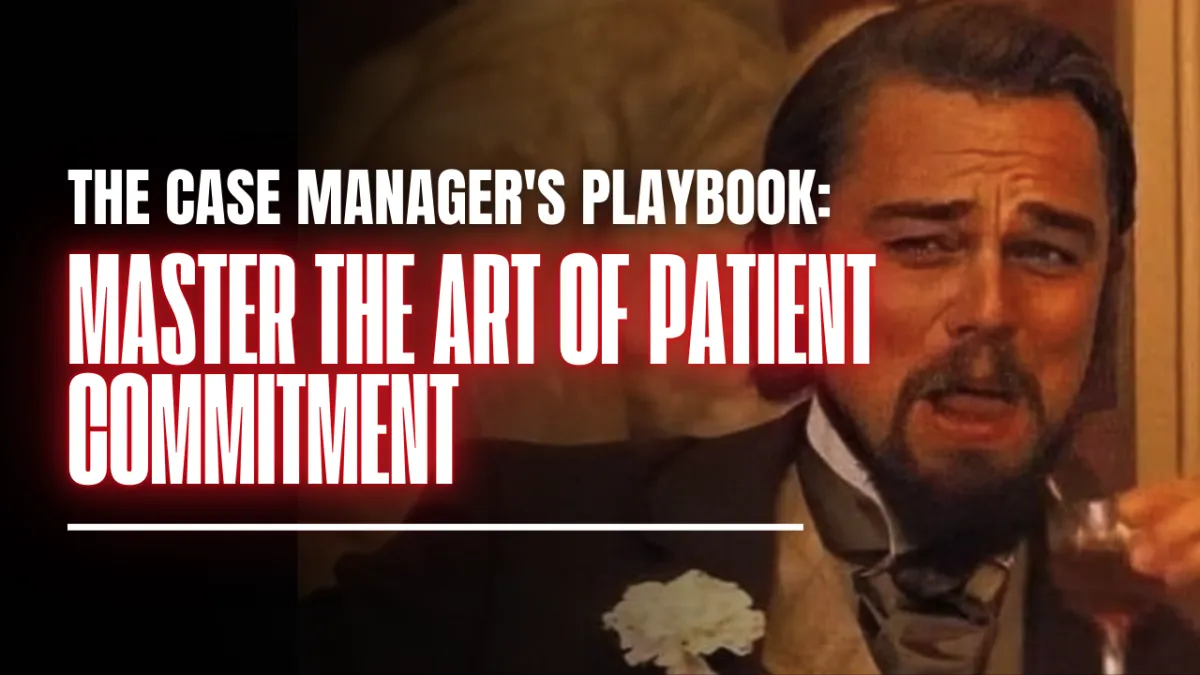
The Case Manager's Playbook: Master the Art of Patient Commitment
You’ve probably heard it all before as a case manager: patients who hesitate, who don't understand the value of their care, or who seem to get "wigged out" by a long list of appointments. These are not obstacles to overcome with pressure, but rather opportunities to build trust and accountability. Today, we're talking about the PIPS of case management, and how mastering them can transform your practice.
What are PIPS? They're the three core areas where patients often get stuck:
Patient Goals
Insuring Payment
Planning Schedules
By shifting your approach from simply "processing" patients to genuinely guiding them, you can unlock their commitment and help them achieve the health goals they’ve set for themselves.
🎯 The Art of Framing Treatment Around Patient Goals
The most powerful way to get a patient committed is to connect their treatment directly to what they want most. This starts on Day One. Instead of just talking about pain, ask about their life:
How does their condition affect them at work or at home?
What activities do they miss, like walking their dog or playing pickleball?
Once you have these goals, you can use them as a "why." In the report of findings, don't just list treatments; explain how each one helps them get back to doing the things they love. For example: "The red light therapy will help heal your feet so you can get back to walking your dog." When you directly tie the treatment to their personal goals, they become an informed buyer, not just a passive patient.
📝 The Right Way to Explain Payment Plans
This is where many case managers get it wrong. The biggest mistake? Information overload. Don't list every option at once. Instead, present one clear option, then pause.
Here’s the step-by-step approach:
Present Option A: "Most of our patients choose to take care of this all in one visit. It's easy, and you get a 20% discount, which would make it X dollars."
Zip It, Lock It: After you state the price and the benefit, be quiet. Let them process the information. They may go through an internal debate about their finances, and this is your chance to let them work through it on their own. They might even propose a solution, like paying half now and half later.
Offer Option B (Only If Necessary): If they say Option A is impossible, then and only then do you introduce the next one, like financing through Care Credit. Again, give them one option at a time and allow them to think.
When you present too many options at once, you create confusion, and a confused patient will always say, "I need to go home and think about it."
⏱️ Overcoming Scheduling Conflicts
Talking about a large number of visits—like "all 36 visits"—is the fastest way to overwhelm a patient. Instead, break it down into manageable, easy-to-answer questions.
Here’s how to master the schedule:
Ask for Their Top Three: Start by asking, "Which three days work best for you?" This makes it about their convenience, not your demands.
Lock it in, Step by Step: Once you have their days, ask for a preferred time. Then, ask, "What one day do you want to keep after that?" By making these simple choices, they’ve just scheduled their entire care plan without even realizing it.
Make it About Their Goals: When you’ve finished, remind them that showing up is the cornerstone of their healing. Say something like, "Please make sure you schedule everything else in your life around these visits. This will keep you on track to reach the goals you set for yourself."
If they mention other scheduling conflicts, like vacations or kids’ activities, you can respond with flexibility, not frustration. Something like, "We work with so many patients who have those same things. Just let us know with 24 hours' notice, and we’ll accommodate you."
💡 Final Thought: It's All About Empowering Patients
The greatest limitation on a patient’s success isn't your clinical skill—it's their lack of accountability. By leading with concern and offering clear, digestible solutions for their goals, payments, and schedules, you empower them to take ownership of their health journey.
🎥 Prefer to Watch Instead?
If you'd rather see these concepts broken down in action, watch the video below for a visual guide on the PIPS of case management.
Who We Are
At MedPro Dojo, we help leaders and healthcare teams strengthen culture, communication, and accountability. Whether it's through training, coaching, or leadership development, we'll help you raise your lid and unlock your full potential.
📩 Email: [email protected] 📞 Call or Text: (833) 678-0800 📕 Book a Discovery Call Today